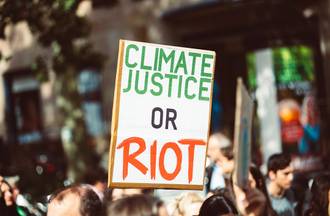Policing Programme
We focus on enhancing police effectiveness in response to new and complex security threats and social challenges, and measures to improve police accountability. We also specialise in the more specific opportunities and difficulties facing policing in developing countries.
Modern police face a variety of new challenges. In addition to responding to traditional forms of crime, citizens and governments expect police to manage complex technical and international crimes, such as cybercrime, fraud and serious organised crime, as well as crimes that have massive societal impact, but which are hard to evidence (such as relating to interpersonal violence). However, policing’s challenges are broader than the task of crime control. Across the world, publics are demanding vast changes to policing and criminal justice systems, questioning their very legitimacy and whether police organisations are best suited to respond to a variety of social problems.
Our policing research provides a better understanding of the problems facing police organisations and policing more broadly. We focus on examining the social and political factors that affect police work and developing context-specific and implementable solutions to improve policing.
Research areas
Policing in Developing Countries and International Police Assistance
Many police forces in developing countries and fragile and conflict-affected states work to provide effective policing and justice despite severe resource constraints, political pressures and working in environments with deep developmental problems. But often, ordinary people’s experience of police gives the impression that they are corrupt, heavily complicit in serious and organised crime, violent and a tool of political repression.
Our research on policing in developing countries is based on first understanding the reality of policing in such contexts. We also work to tailor policy responses in the fields of international police assistance and security sector reform to fit local social and political realities, working closely with local partners, policymakers, academics and leading international donors.
Policing, Regulating and Preventing Environmental Crime
In environmental crime discourse and practice, there has been a prominent push to adopt deterrence strategies and strengthen law enforcement in order to combat problems such as wildlife and timber trafficking, illicit mining, and illegal fishing. These types of crime frequently involve complex value chains and offender hierarchies, with critical differences in the motives, offenders and modus operandi involved and no ‘one size fits all’ approach to criminal justice and crime prevention. Other environmental harms – such as pollution in deregulated markets – are not even criminalised and require a more regulatory approach. Finally, corruption plays a significant role in undermining environmental justice and enabling non-compliance.
Through collaboration between its policing and environmental crime experts, OCP is leading enquiries into the impact of corruption on environmental justice and de-homogenising approaches to policing natural resources, in order to support better policy and best practice in policing and regulatory approaches to combatting such harms.
Latest publications
View all publicationsOur experts
Cathy Haenlein
Director of Organised Crime and Policing Studies
Organised Crime and Policing
Elijah Glantz
Research Fellow
Organised Crime and Policing
Anne-Marie Weeden
Senior Research Fellow, Environmental Crime Lead | SHOC Network Member
Organised Crime and Policing
Fellows
Michael Fuller QPM BA MBA LLM Hon LLD
Distinguished Fellow
The Lord Hogan-Howe QPM
Distinguished Fellow
Sir Mark Rowley
Distinguished Fellow
Sir Rob Wainwright KCMG
RUSI Distinguished Fellow, Cyber and Tech
Chris Batt
RUSI Senior Associate Fellow, Organised Crime and Policing
Professor Marion Oswald MBE
Senior Associate Fellow
Shane Roberts
RUSI Senior Associate Fellow, OCP; SHOC Network Member - Practitioner
Julien Bastrup-Birk
RUSI Associate Fellow, Organised Crime and Policing
Dr Alexander Chance
RUSI Associate Fellow, Organised Crime and Policing
Dr Alex Sutherland
RUSI Associate Fellow, Organised Crime and Policing
Projects
View related projects





















